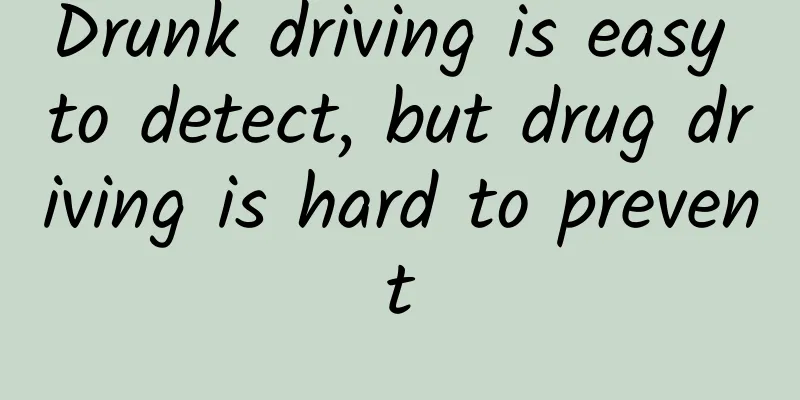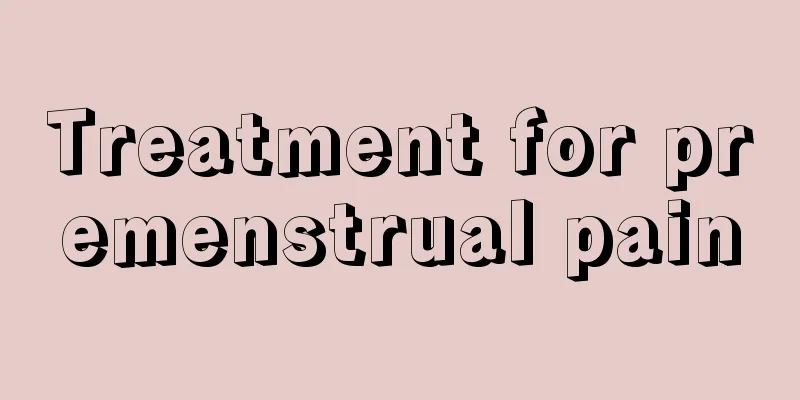Drunk driving is easy to detect, but drug driving is hard to prevent

|
Article 22 of the Road Traffic Safety Law stipulates that a person who drinks alcohol, takes psychotropic drugs or narcotics controlled by the state, or suffers from a disease that hinders safe driving of a motor vehicle, or is overly tired and affects safe driving, shall not drive a motor vehicle. As we all know, drinking alcohol, taking psychotropic drugs or narcotics have a great impact on driving. Drunk driving is regulated by the transportation department, and my country also implements special management for these two types of drugs. It is difficult for ordinary people to come into contact with them, but those commonly used drugs that contain certain driving-affecting ingredients are often overlooked. Driving after taking these drugs is called "drug driving", which is very likely to cause traffic accidents. 1. Antihistamines Antihistamines are what we usually call anti-allergic drugs. They have a significant inhibitory effect on the central nervous system. Their main adverse reactions include drowsiness, fatigue, blurred vision, headache, etc. Common drugs include chlorpheniramine, astemizole, cetirizine, and loratadine. Other common medicines containing antihistamines are cold medicines, which are used to combat runny nose, cough, phlegm and other symptoms that appear in the early stages of a cold. Common medicines include Ganmaoqing Capsules, Ganmaoqing Tablets, Biyankang Tablets, Vitamin C Yinqiao Tablets, and Suxiao Ganmao Capsules. 2. Antitussive drugs Centrally acting antitussives have an inhibitory effect on the central nervous system, which can cause visual impairment and sudden fatigue in the user, and may affect the driver's thinking and control sensitivity. Common drugs include codeine, Kebiqing, and Kekuihao. 3. Antipyretic and analgesic drugs After taking these drugs, some people will experience hearing loss, heavy sweating, and even collapse. Common drugs include aspirin, phenacetin, aminopyrine, etc. 4. Antibiotics The use of aminoglycoside antibiotics can cause ataxia, often with headaches, tinnitus, deafness, blurred vision, tremors and other adverse reactions. Common drugs include gentamicin, streptomycin, etc. 5. Antihypertensive drugs Excessive blood pressure reduction can cause drowsiness, headache, dizziness, and hypotension reactions, etc. Common drugs include propranolol, nifedipine, etc. 6. Hypoglycemic drugs If the blood sugar is lowered too much, it will cause hypoglycemia. If the drug is taken when hungry, it is more likely to cause problems, and side effects such as palpitations, dizziness, sweating, and collapse may occur. This is especially common with insulin and sulfonylureas. Common drugs include Glyburide and Diamecon. 7. Health Products Ginseng and American ginseng preparations have obvious anti-fatigue effects, but when used in large doses for a long time, they are prone to nervous system symptoms such as irritability, headaches, and even confusion. 8. Analgesics Central analgesics have an inhibitory effect on the central nervous system and can cause side effects such as hallucinations, mental relaxation, and loss of balance. Common drugs include opium, morphine, and quinidine hydrochloride. 9. Sedatives and hypnotics This type of drug can produce sedative, hypnotic and anticonvulsant effects on people. Common drugs include diazepam, nitrosamine, phenobarbital, etc. 10. Antipsychotics It will weaken the patient's attention and reaction ability, and cause drowsiness and fatigue after taking it. Common drugs include imipramine, flupentixol melitracen tablets, doxepin, etc. How can we avoid getting into trouble due to driving under the influence of drugs? 1. When seeing a doctor, tell the doctor that you need to drive and ask the doctor to avoid using drugs that have adverse effects on driving; 2. Before taking the medicine, read the drug instructions carefully, especially the [Adverse Reactions] and [Precautions]. If it is stated that "it is not advisable to drive a car or boat, engage in high-altitude work, mechanical work, or operate precision instruments during medication", you should follow the instructions and try to avoid driving to avoid "drug driving"! References: 【1】Tan Xiaomei. How can clinical pharmacists be alert to the dangers of driving under the influence of drugs? 2013 National Academic Conference on Hospital Pharmacy (Pharmacy Service and Practice). 2013 (11). 74-75 【2】Li Qiang, Fu Qingjie, Li Mingchun, Pang Miaomiao, Tan Xiao. Research progress on the effects of drugs on driving at home and abroad. Chinese Journal of Pharmacy. 2013 (10).759-762 |
<<: Is it good to buy a new energy vehicle? What is the maintenance of new energy vehicles?
Recommend
How many months does it take to do a four-dimensional color ultrasound?
Many people know that they need to be checked dur...
What foods can help stabilize the fetus?
When a woman becomes pregnant, many changes will ...
Early pictures of cauliflower disease in women
The treatment of genital warts infection in women...
What are the dangers of honeymoon vaginitis
Honeymoon vaginitis is quite common because many ...
The best time to conceive a girl
Nowadays, many fathers feel that they must have a...
Is female bladder pain a gynecological inflammation?
The bladder belongs to the human genitals, which ...
Why don't many foods have genetically modified labels? You'll understand after reading this cartoon
I heard that genetically modified foods are flood...
[Fat Bear Science] Why do we need to do CT or MRI after color Doppler ultrasound to diagnose some diseases? Can't one test do the job?
Doctor, I have a lot of lumps on my neck! Go get ...
What are the causes of breast cysts?
Nowadays, more and more women are suffering from ...
Why do girls feel hot down there?
If girls often feel hot down there, it may be due...
It has become "impotence", how can I make these pains go away! Go away! Go away!
Source: Xinhuanet...
Are condoms without sperm storage more comfortable?
Generally, condoms are designed with sperm vesicl...
Why do we need a glucose tolerance test?
Pregnant women need to do a lot of examinations d...
How long does it take for B-ultrasound to detect pregnancy after menopause
We all know that the main symptoms of pregnancy a...
Nipples are sore and hard
Everyone should pay attention to the situation wh...









